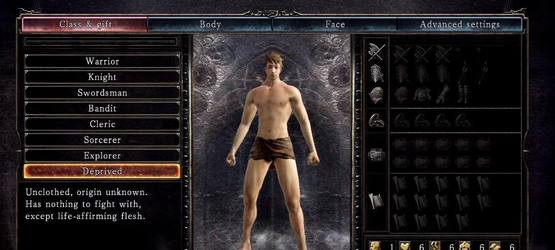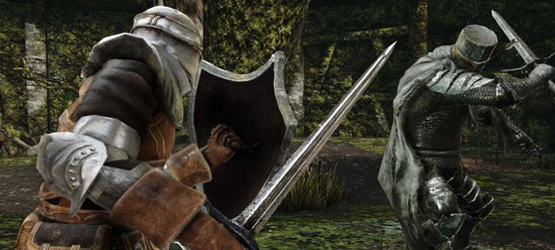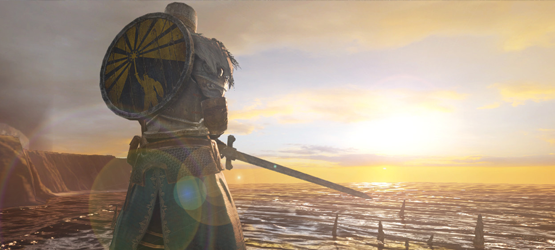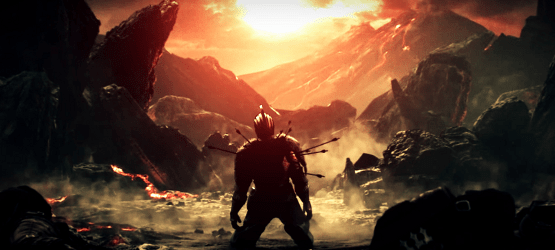Just over two years ago, gamers around the world put themselves up to the task of trying to get through one of the most punishing and rewarding games to come out in modern gaming, Dark Souls. Now, From Software are back with a successor to the title, with Dark Souls 2, a game the has somehow found a way to be even more unforgiving than the first.
Much like its predecessor, Dark Souls 2 revolves around a character who becomes cursed by being an undead and needs to find a cure. Past that, the story is still something that only comes in mild glimpses and drawn out exposition that feels a bit oddly developed. This means that instead of a direct narrative, Dark Souls 2 treats the story as an afterthought to staying alive, something that just adds to the games confusion by design motif.
This indirect methodology is something that is at the core of Dark Souls 2, as very little in the world is explained from the start and won’t be for some time. All of this seems to be a part of the greater scheme to push players into a situation of feeling like a lost soul themselves, wandering an unknown world, looking for answers. Conceptually, this a great idea, but having to overcome the game’s almost non-existent tutorial and steep learning curve will leave new players with the challenge of learning to walk before they can attempt to swing a sword.

One of the biggest changes to Dark Souls 2 is that, for better and worse, it has decidedly moved away from its more Gothic and drab color pallet it was known for. Now, vibrant grasslands, sprawling seasides and advanced lighting techniques permeate the world of Drangleic. Yet, no matter how lush the world looks, the air never leaves you feeling more than a few breaths away from death, especially as you dive deeper into the game. This wonderful design of atmosphere is sadly broken by moments where stark contrasts in quality can’t be missed.
At times, certain character models or things in the world simply won’t stand up to the same standards set by other areas of the game. Hidden under wonderfully designed armor, a roughly textured face and a low poly body will constantly remind you that not everything is as it seems. Thankfully, even though you may be torn out of the experience at times, Dark Souls 2’s crushing difficulty remains intact and will easily be able to make you forget about the game’s polygon count.
This, of course, is why people set out to beat a title like Dark Souls 2. Much like a gaming equivalent to climbing a mountain, you will be pushed to your very limit at almost every turn and be forced to deal with your mistakes and move on, or fail and go back home (or to Gamestop). Of the changes, none have a greater effect than the way death is handled this time around. When you die (and you will), you now lose a fragment of your available life (down to 50%, unless you sin) and can only access the lost portions by using a rare item called a Human Effigy. Making each attempt through a difficult area all the more challenging, as each time you set out, you will be worse off than before.

Combat is pretty much the exact same as it was in the previous title, as you can die within a few strikes, much like most normal foes, and bosses are generally defeated by being whittled down by using the correct strike and roll pattern. This construct normally works well, as it is always just a matter of timing and positioning, but is also the reason why some of Dark Souls 2’s more mundane issues become stark problems.
Between the camera’s inability to pass through walls, and a simple change in combat mechanics, From Software have designed a game that will kill you and there will be almost do nothing you can do about it. This is mainly due to a change in the targeting system, long gone is the auto-aim mechanic when using the target lock, attacks will now only attack in the exact direction you are facing.
On top of that, there is now the ability to free run while in lock, so the ability to face the wrong direction is all the more possible. This only becomes more of an issue, as the camera will zoom directly in on your character if you get too close to a wall, cutting off visibility almost completely, which will pretty much nail your coffin shut. Between balancing your characters almost robotic sense of direction and having to dance with a camera that is also set out to kill you, Dark Souls 2 just feels more like a game (and a dated one at that) than its predecessor.

If this sounds like Dark Souls 2 is a bad game, it isn’t. It is simply cut from a different cloth than most other games. It’s still a deep game with countless hours of content, replayability, and even a New Game+ option with even more content. Gamers looking for a challenge will find it here in spades. Each move will be more rewarding than the last, and regardless of how challenging something is, there is always the knowledge that no matter how alone you feel in the world, there are other people dealing with the same problems.
Sadly, one change that was not available by the time of this review, was that Dark Souls 2 will now be using dedicated servers to add a more robust level of interaction between players, so I cannot comment on how well those aspects work in conjunction with the rest of the game.
Ultimately, this has been the most difficult review of my career. Not because it was a difficult game, not because I wasn’t able to complete it before having to review it, but because it is the only game that is beautiful because of its ability to piss me off. Almost every subtle issue I can take with it has a reasoning behind it. Every change I could want seems to only go against its devil-may-care construct. It is a world of subtle truths that seemingly removes the designer’s guiding hand, leaving a world that is not only cold and unforgiving, but one that is rewarding in its most pure form. It is a magical recipe of pain and frustration that seeks to make you a better player by the end, simply breaking you down step by step, until you feel like you have personally leveled up more than your digital avatar, and that is something not a lot of games can do.
-
Highly Rewarding.
-
Great atmosphere.
-
Lots of content.
-
Replayability.
-
Camera.
-
Lock-on system.
-
Generally too vague for its own good.
-
Character models.








